SONG Sopheak
Senior Research Fellow
Dr Song Sopheak is the Deputy Executive Director in charge of research at CDRI. Prior to this current position, he had been with CDRI’s Centre for Educational Research and Innovation since 2016, first as the research fellow and then the director between 2020 and 2022. His international experience in research career includes fellowships at the Global Career Design Center of Hiroshima University, Japan; at the Centre for the Study of Higher Education, University of Melbourne, Australia; and at the Swiss Federal Institute for Vocational Education and Training, Switzerland. At CDRI, he has led several research projects on post-secondary education and training in Cambodia with focus on STEM education, workforce development, employer engagement, and technology integration in education. Dr Song Sopheak holds a PhD in Educational Science and Humanities from Hiroshima University, Japan.
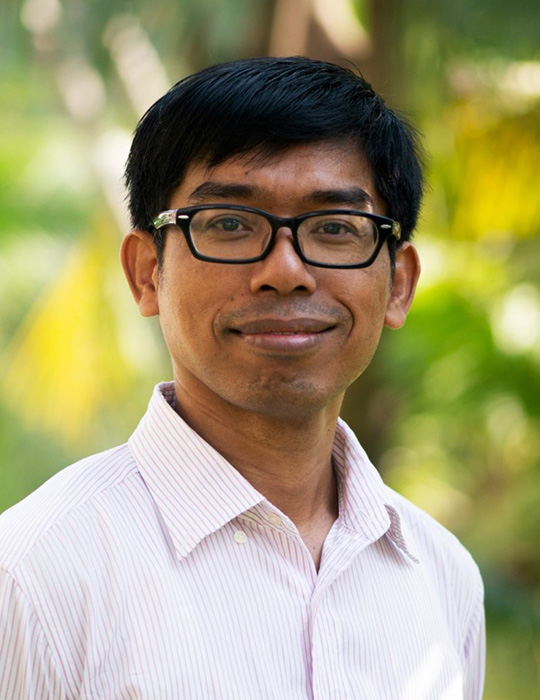
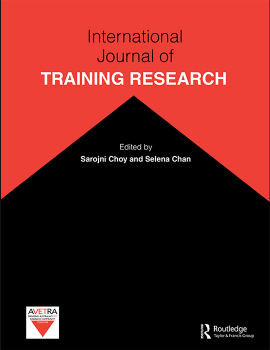
Understanding what determines a worker’s passion for skills training has important policy implications, particularly in the current context of the fourth industrial revolution, in which knowledge is deemed obsolete within several years. The purpose of this study is to answer a specific question: are higher-ability garment workers more likely to eng...
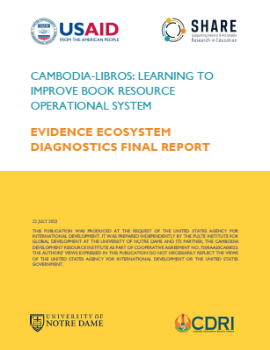
This Systems Thinking workshop involved the implementation of eight main activities: issue prioritization, issue mapping systemigram, strategy prioritization, evidence prioritization, stakeholder and idealized evidence network mapping, evidence ecosystem relationship analysis, mapping critical success factors, and research contextualization. A...
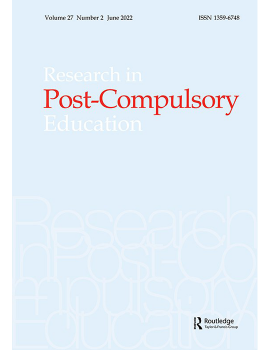
This study intends to identify existing permeability pathways between post-secondary education and training in Cambodia and to highlight hindrances that hamper the smooth permeability between the two systems. Adopting a hybrid process, the study combines both inductive and deductive thematic analysis approaches in coding transcribed interviews at 1...
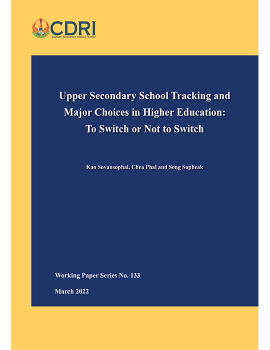
This study explores the phenomenon of academic major switching among Cambodian students transitioning from upper secondary school to higher education. Despite a high proportion of students enrolling in the science track at secondary level, only a minority pursue STEM majors at university. Using survey data from 1,338 students across 21 higher educa...
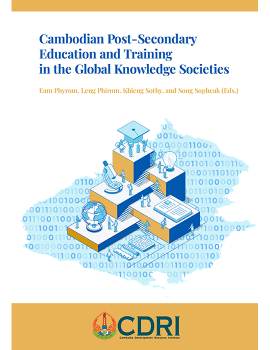
The emergence of global knowledge societies makes it necessary for Cambodian Post-Secondary Education and Training (PSET) system to: accelerate its knowledge-creation function, leading to academic excellence and intellectual prowess; cultivate vocational value, professional quality, and workplace learning habits in its students; build a robust...
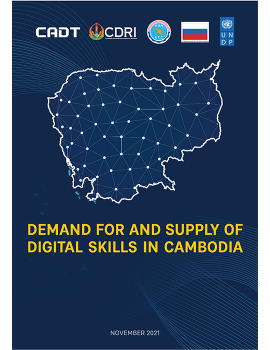
The study assesses current and future demand for and supply of digital and ICT skills and investigates the challenges firms of all sizes, universities, and TVET institutions face in preparing themselves and their students for digital technology adoption under the framework of the Fourth Industrial Revolution (4IR). A mixed-methods approach of quant...
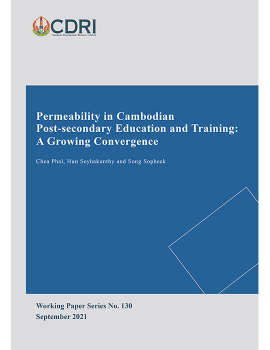
This study explores the permeability between Cambodia’s post-secondary technical and vocational education and training (TVET) and academic higher education systems. Permeability refers to the ability of learners to transfer across educational tracks and qualification levels, promoting lifelong learning and social inclusion. Drawing on interviews wi...
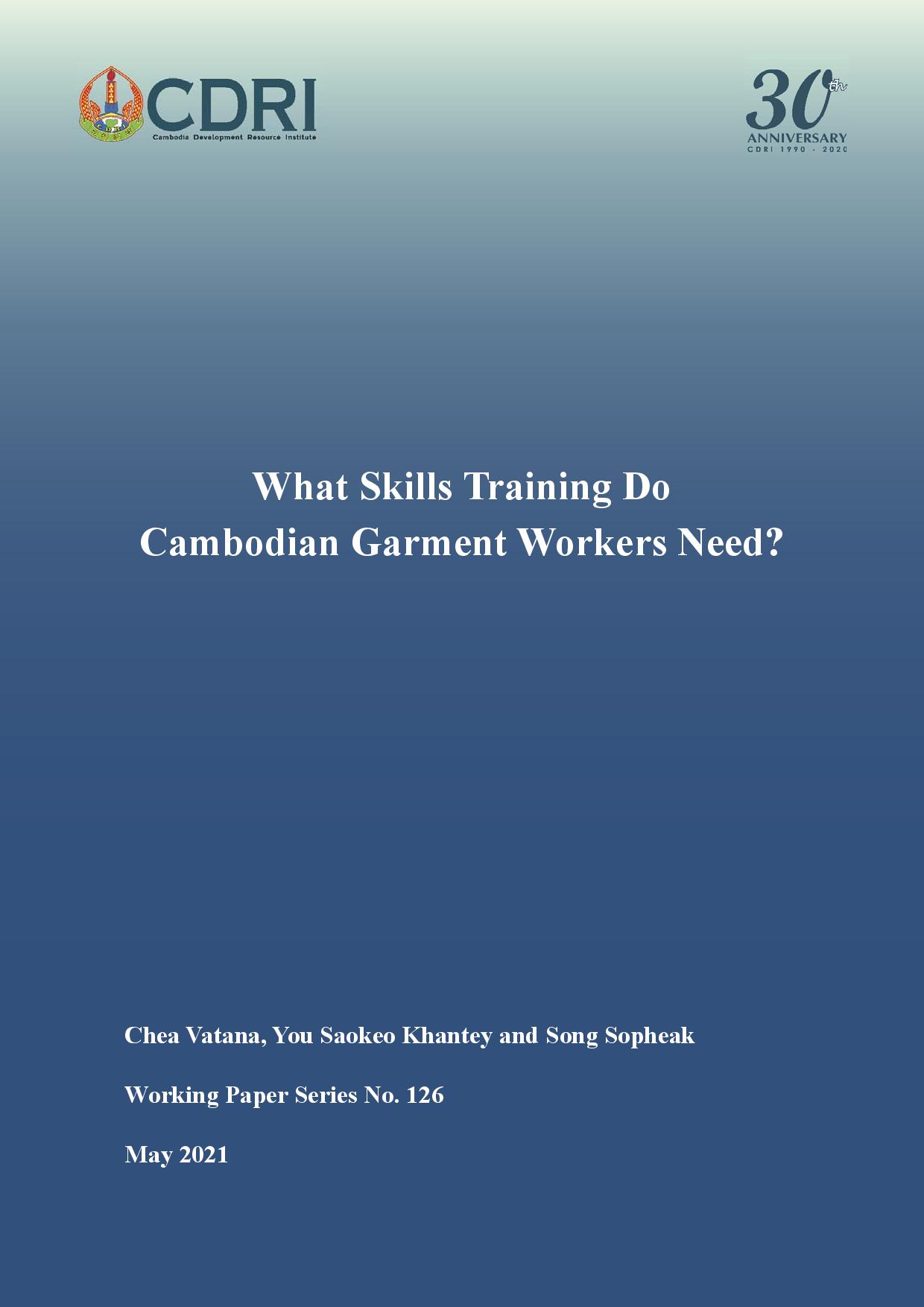
This study aimed to identify the current skills of Cambodian garment workers, whether or not they wanted to gain new skills and, if so, what those were. The results revealed that the greatest percentage – 60 – had acquired sewing skills, followed by quality control and packaging skills. More than two-thirds were also able to read, write and calcula...
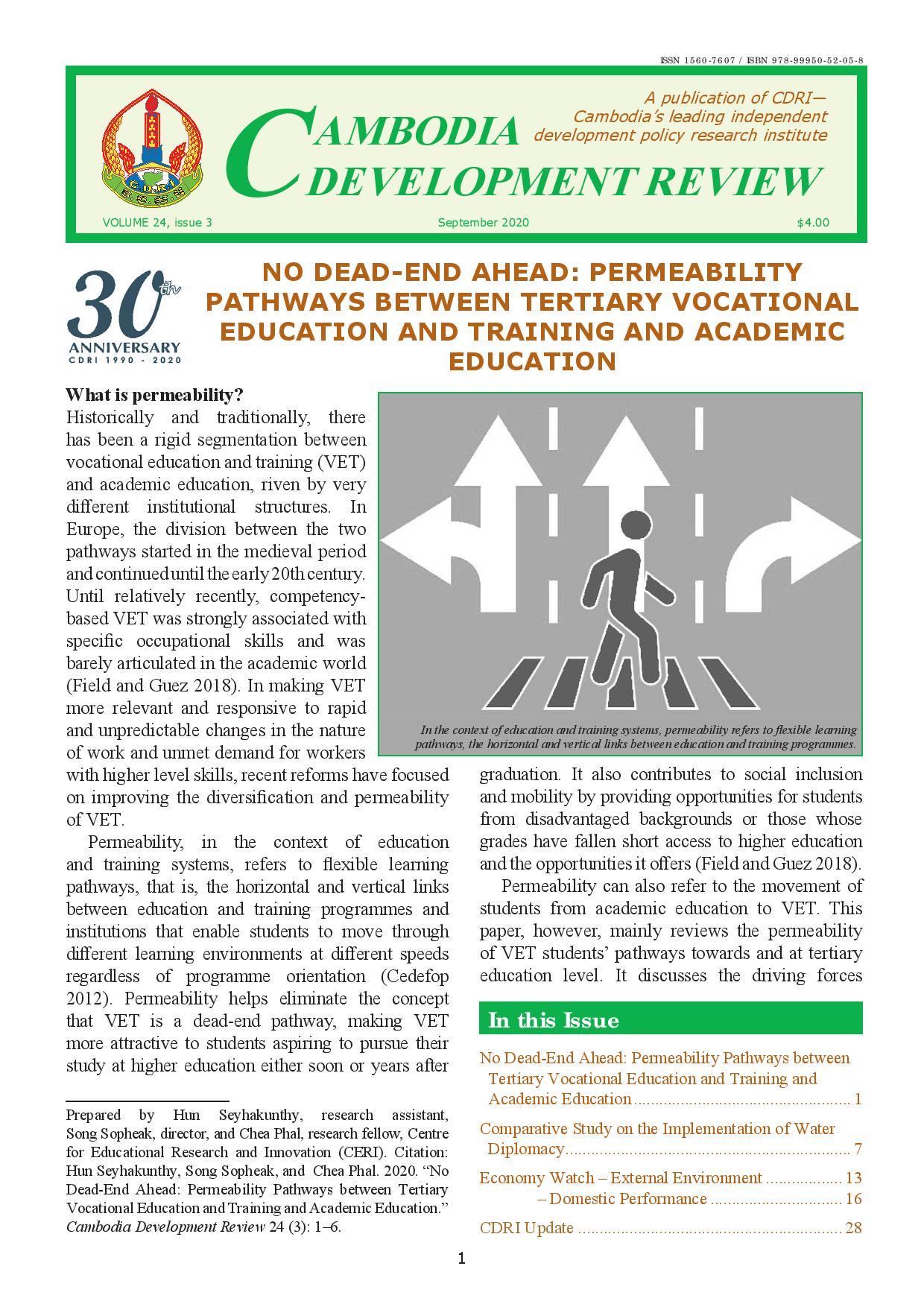
Permeability, in the context of education and training systems, refers to flexible learning pathways, that is, the horizontal and vertical links between education and training programmes and institutions that enable students to move through different learning environments at different speeds regardless of programme orientation. This study aims at d...
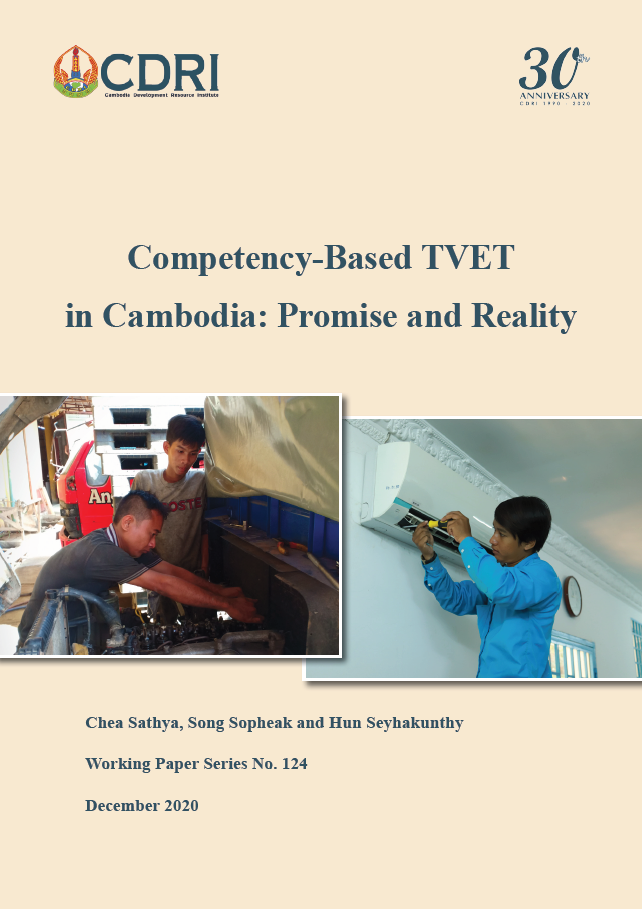
This study examines the development and implementation of competency-based training (CBT) in Cambodia’s technical and vocational education and training (TVET) sector. Introduced to align education with labour market needs, CBT emphasises student-centered, practice-oriented learning and flexible, modular curricula. Despite its potential, CBT impleme...
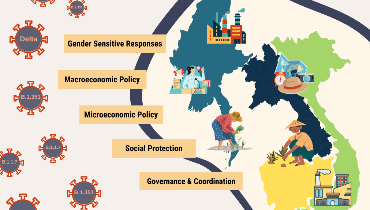
In close coordination with local governments and organizations, the project will identify gender-sensitive policies and good practices from the macro to micro level that will support the recovery process and improve resilience among vulnerable women workers and micro, small, and medium enterprises. It will facilitate policy dialogue and coordin...

Under the Capacity Building Research and Development Fund of the Ministry of Posts and Telecommunications, United Nation Development Programme, Cambodia and the Russian Federation, the Cambodia Development Resource Institute in collaboration with the Cambodia Academy of Digital Technology (formerly known as the National Institute of Posts, Telecoms...
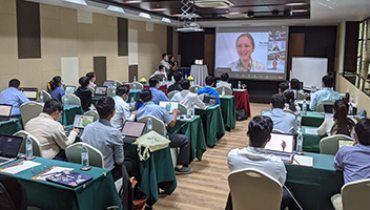
This three-year programme is supported by the Australian Department of Foreign Affairs and Trade (DFAT) through The Asia Foundation (TAF)’s Ponlok Chomnes Programme: Data and Dialogue for Development in Cambodia. In this programme CDRI aims at strengthening the capacity of knowledge-sector institutions to undertake quality research, informing publi...
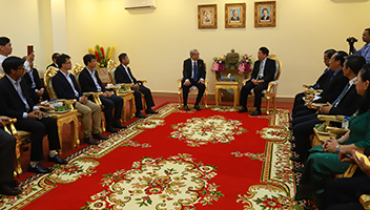
Cambodia has achieved strong growth in the past two decades, and the country has graduated to lower-middle-income status with a per capita income of about USD1,215 (2015). A feat that neighbouring Vietnam achieved in 2010 and Laos in 2011. Building on this achievement, Cambodia aspires to become an upper-middle-income country by 2030 and a high-inc...
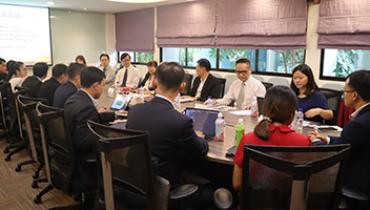
The “Higher Education Policy Research & Influencing in Cambodia” was one of the major programmes implemented by the Education Unit of the Cambodia Development Resource Institute (CDRI). Receiving financial support from the Australian Department of Foreign Affairs and Trade (DFAT), the three-year programme aimed to produce independent, objective, hi...
